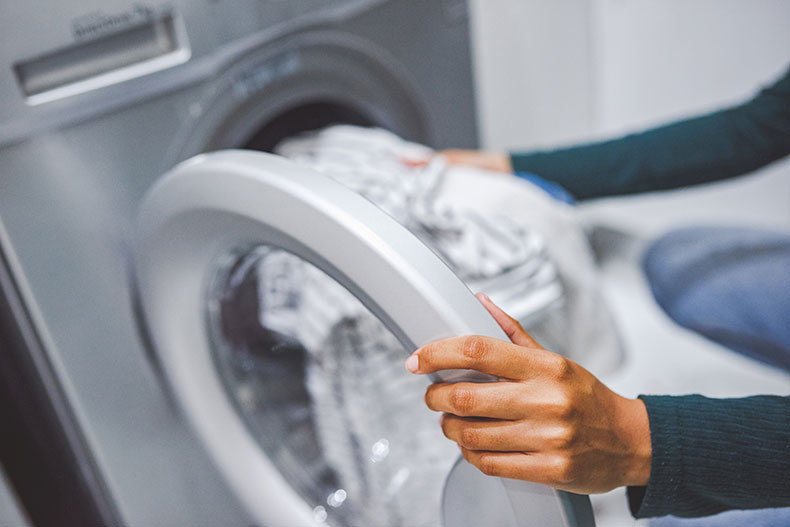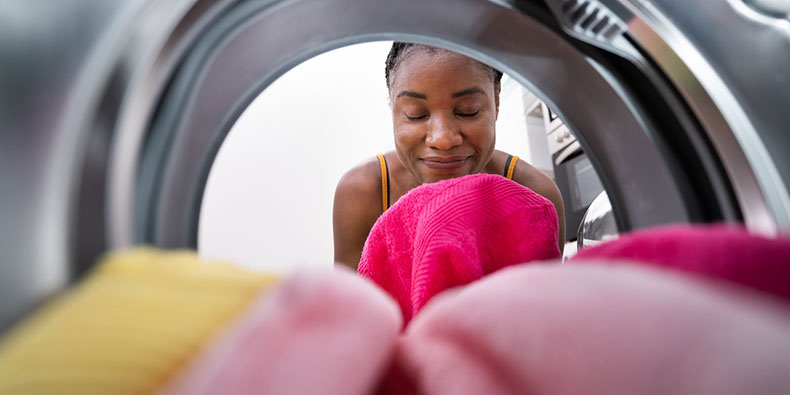A heat pump dryer works as a closed-loop system by heating the air, using it to remove moisture from the clothes and then reusing it once the moisture is removed. Rather than releasing warm, humid air through a dryer vent to the exterior of the home as a conventional dryer does, a heat pump dryer sends it through an evaporator to remove the moisture without losing too much heat. That means your indoor conditioned air is not being exhausted outdoors and being replaced by outside, unconditioned makeup air. Making use of a refrigerant as part of the drying process means less electricity is used to generate heat.
Advantages
- Easy to install since they don’t require ventilation
- Can reduce energy use by at least 28% compared to standard dryers
- Dries laundry at low temperatures, so they are gentler on clothes
- Compact models can be installed in tight spaces and even stacked with a compact washing machine.
Because they don’t require a vent, they can be installed in any room with electricity and a water source — making them a great choice for tiny homes, accessory dwelling units (e.g., apartment over the garage), and additions.
Like all Energy Star-certified dryers, heat pump clothes dryers come with moisture sensors, which can help save time and energy and prevent over drying. But the features don’t stop there — take a look, and you’ll find models with anti-wrinkle technology, smart settings, and even remote smartphone control.
Water drainage
A heat pump dryer’s evaporator removes moisture from the air during the drying process, resulting in water that needs to be drained. Potential solutions include manually draining the water tank, using a drain hose (provided by the manufacturer) to discard the water automatically in a nearby sink or drain pipe, or installing a device that allows a heat pump dryer to use the clothes washer drain to remove the water.

Any better options for washing machines?
We've got the scoop on the benefits of front load washing machines—find out if one is for you!


